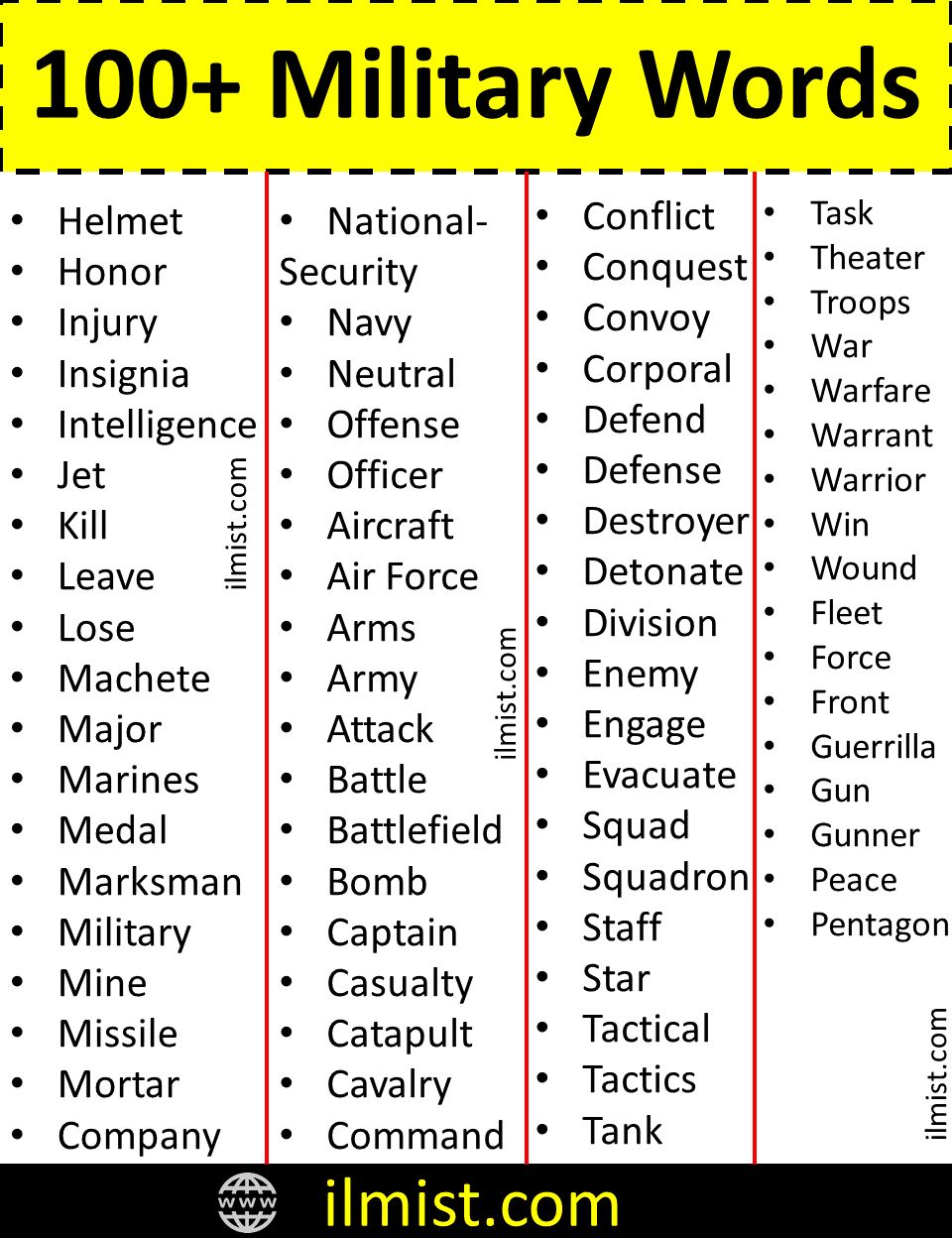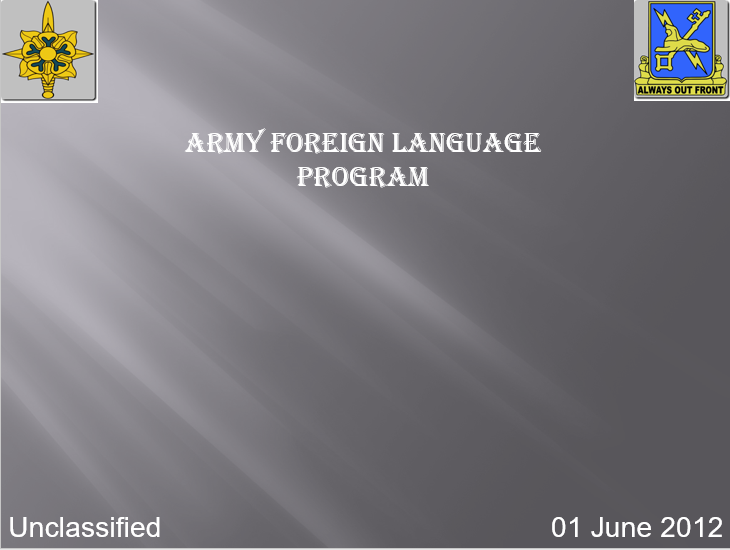Unlocking the World: Language Learning for Military Personnel With enthusiasm, let’s navigate through the intriguing topic related to Unlocking the World: Language Learning for Military Personnel. Let’s weave interesting information and offer fresh perspectives to the readers.
Unlocking the World: Language Learning for Military Personnel
In today’s globalized world, the military operates in a complex and dynamic environment. Military personnel are increasingly deployed to diverse regions, interacting with populations speaking a multitude of languages. Proficiency in a foreign language can be a critical asset, enhancing operational effectiveness, fostering cultural understanding, and building trust with local populations. This blog post will delve into the importance of language learning for military personnel, offering actionable insights and strategies for successful language acquisition.
Why Language Learning Matters for the Military
- Enhanced Operational Effectiveness: Language skills are essential for mission success. From communicating with local populations to interpreting intelligence reports, fluency enables soldiers to gather vital information, coordinate operations, and ensure the safety of themselves and their comrades.
- Improved Cultural Awareness: Language learning goes beyond mere communication; it provides a window into the culture, customs, and values of a region. Understanding local perspectives and nuances allows military personnel to navigate complex situations with greater sensitivity and build stronger relationships with local communities.
- Increased Trust and Collaboration: Fluency in a local language fosters trust and collaboration with foreign allies and partners. It enables military personnel to build rapport, facilitate communication, and strengthen relationships, ultimately contributing to a more effective and cohesive international force.
- Career Advancement and Personal Growth: Language skills are highly valued in the military. Proficiency in a foreign language can open doors to specialized roles, leadership opportunities, and career advancement. It also enhances personal growth, broadens horizons, and fosters a deeper understanding of the world.

Strategies for Successful Language Learning
1. Identify Your Motivation and Goals: Start by clearly defining your reasons for learning the language and setting realistic goals. Are you aiming for basic conversational skills, operational fluency, or advanced linguistic proficiency? This will help you choose the appropriate learning path and stay motivated.
2. Choose the Right Learning Method: There are numerous language learning methods available, each with its own strengths and weaknesses. Consider your learning style, available resources, and time commitment when selecting a method. Here are some options:
* **Formal Language Courses:** Structured courses offered by language schools, universities, or military institutions provide a comprehensive and systematic approach to language acquisition.
* **Immersion Programs:** Spending time in an environment where the target language is spoken offers a highly effective way to learn. Consider immersion programs, study abroad opportunities, or language exchange partnerships.
* **Language Learning Apps and Software:** Numerous apps and software programs offer interactive lessons, gamified learning experiences, and personalized feedback. These tools can be convenient and effective for self-paced learning.
* **Language Partners and Tutors:** Finding a native speaker to practice with can greatly accelerate your learning progress. Consider language exchange programs, online tutoring platforms, or connecting with local communities.3. Embrace a Multifaceted Approach: For optimal results, combine different learning methods. For instance, complement formal courses with language learning apps, practice speaking with native speakers, and immerse yourself in cultural experiences. This multifaceted approach will engage different learning styles and accelerate your progress.
4. Focus on Active Learning and Practice: Language learning is an active process. Avoid passive learning by actively engaging with the language. Practice speaking, writing, listening, and reading regularly. Utilize flashcards, vocabulary lists, and language learning games to reinforce your knowledge.
5. Utilize Technology to Your Advantage: Leverage technology to enhance your learning experience. Use language learning apps for vocabulary building and grammar practice, access online dictionaries and translation tools, and utilize language learning websites for interactive exercises and resources.

6. Embrace Cultural Immersion: Immerse yourself in the culture of the language you are learning. Explore music, films, literature, and art from the target language region. Engage with local communities and participate in cultural events. This will enhance your understanding of the language and its nuances.
7. Set Realistic Expectations and Celebrate Progress: Language learning takes time and effort. Be patient with yourself and celebrate your progress along the way. Focus on consistent effort and gradual improvement rather than perfection.
8. Seek Support and Accountability: Connect with other language learners, join language groups, or find a language buddy for support and accountability. Sharing your experiences and challenges can motivate you to stay on track and achieve your goals.
9. Stay Motivated and Engaged: Language learning can be challenging at times. Stay motivated by reminding yourself of your goals, celebrating your progress, and finding ways to make the process enjoyable. Explore different learning methods, incorporate activities you enjoy, and seek out opportunities to use the language in real-world situations.
10. Develop a Personal Learning Plan: Create a personalized language learning plan that aligns with your goals, learning style, and available resources. Set specific, measurable, achievable, relevant, and time-bound (SMART) goals. Track your progress, adjust your plan as needed, and stay committed to your learning journey.
Specific Strategies for Military Personnel:
- Utilize Military Language Resources: The Department of Defense (DoD) offers numerous resources for military personnel, including language training programs, language proficiency tests, and cultural awareness materials.
- Engage in Language Training During Deployments: Utilize downtime during deployments for language learning. Carry language learning materials, access online resources, and connect with local speakers.
- Participate in Cultural Exchange Programs: Military exchange programs provide opportunities to interact with foreign military personnel, learn about their culture, and practice the language.
- Seek Mentorship from Language Proficient Personnel: Connect with colleagues who are fluent in the target language for guidance, support, and practice opportunities.
- Use Language Skills in Real-World Scenarios: Seek opportunities to use the language in real-world situations, such as interacting with local populations, conducting patrols, or participating in cultural events.

Conclusion:
Language learning is an invaluable asset for military personnel, enhancing operational effectiveness, fostering cultural understanding, and building trust with local populations. By embracing a multifaceted approach, utilizing available resources, and staying motivated, military personnel can achieve fluency in a foreign language and unlock a world of opportunities. The journey of language learning is a continuous process of growth, discovery, and connection. By investing in language skills, military personnel can contribute to a more effective, culturally sensitive, and globally connected force, ensuring mission success and building bridges of understanding across the world.
Closure Unlocking the World: Language Learning for Military Personnel
Thus, we hope this article has provided valuable insights into Unlocking the World: Language Learning for Military Personnel. We hope you find this article informative and beneficial. See you in our next article!
Related Articles: Unlocking the World: Language Learning for Military Personnel






Leave a Comment